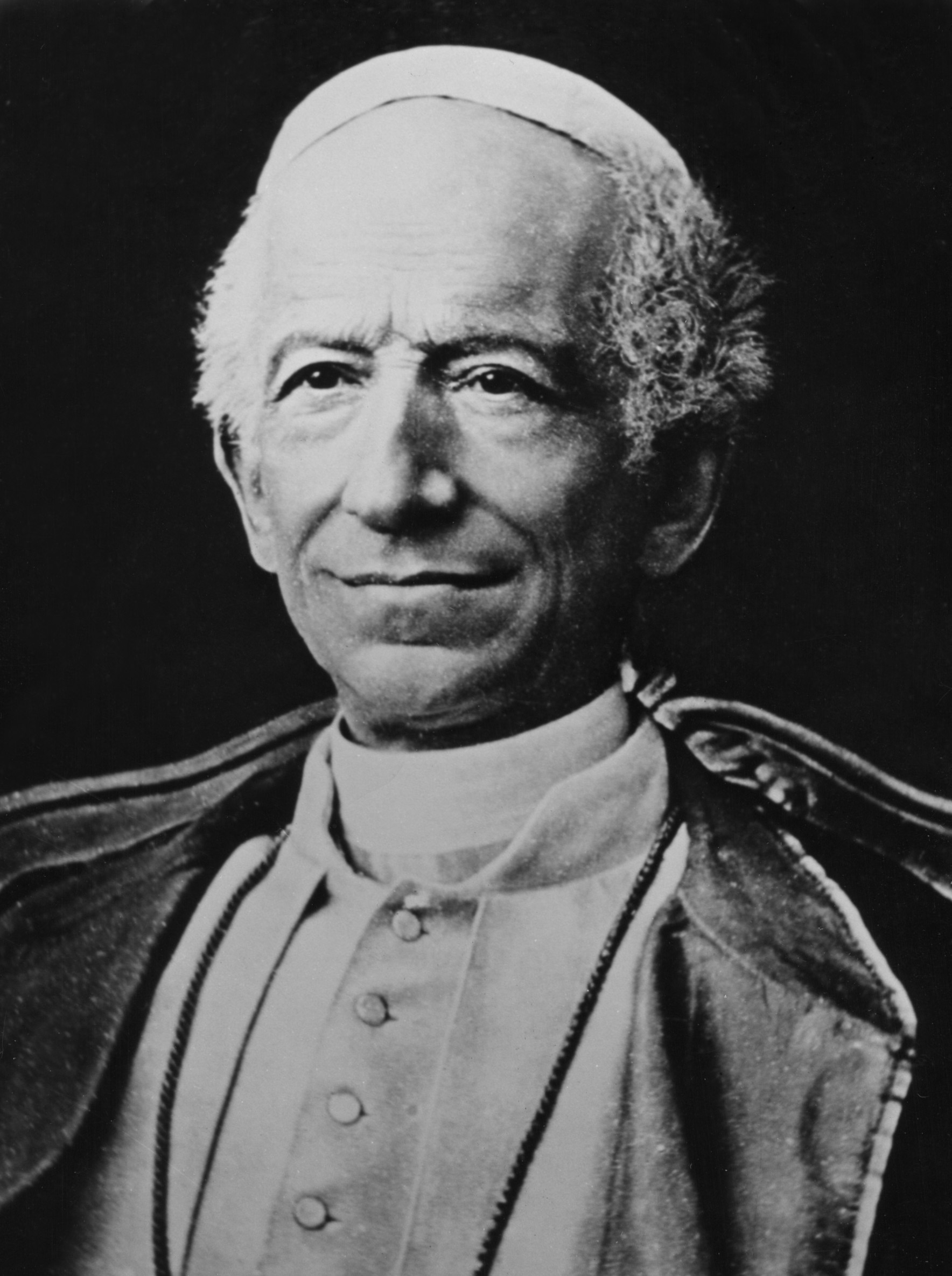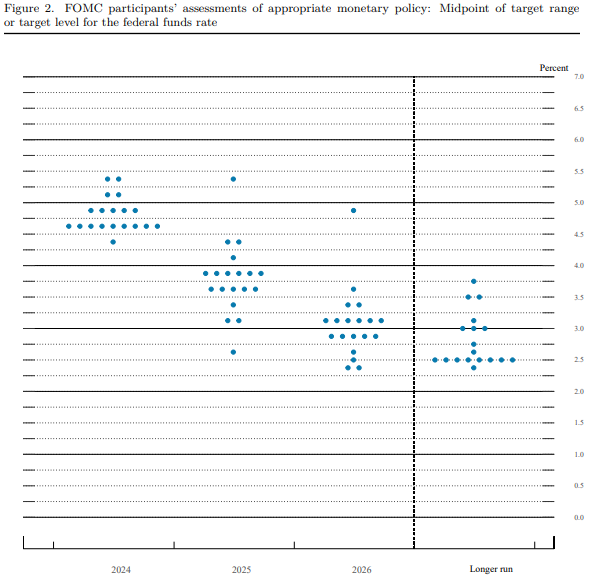'De Facto Atheism': Pope Leo's Concerns In First Papal Mass

Table of Contents
The Socio-Political Context of Pope Leo XIII's Concerns
The late 19th century in Europe witnessed a dramatic shift in societal values. The Enlightenment's emphasis on reason and individualism challenged the traditional authority of the Catholic Church, paving the way for secularism. Scientific materialism, with its focus on observable phenomena, further eroded religious explanations for the world. The rise of liberalism and nationalism, emphasizing individual rights and national identities over religious unity, further destabilized the Church's position.
This complex interplay of forces created a fertile ground for what Pope Leo XIII termed "De Facto Atheism." The impact of these ideologies was profound:
- The Enlightenment's impact on religious belief: The emphasis on reason led many to question traditional religious dogma and seek alternative explanations for the existence of the universe and humanity's place within it.
- The rise of socialist and communist ideologies: These movements, often explicitly atheistic, offered alternative social and economic models that challenged the Church's traditional role in society.
- The influence of Darwinian evolution on religious thought: Darwin's theory of evolution presented a scientific challenge to the literal interpretation of the creation narrative in the Bible, causing significant theological debate and impacting faith for many. This contributed to the growing disconnect between intellectual life and religious belief, feeding the rise of "De Facto Atheism" in 19th Century Europe. The Catholic Church itself faced the challenge of reconciling faith with the emerging scientific understanding.
These factors, combined, created the socio-political backdrop against which Pope Leo XIII articulated his concerns about the prevalence of practical atheism.
Manifestations of "De Facto Atheism" Observed by Pope Leo XIII
Pope Leo XIII, through his writings and sermons, meticulously documented his observations of "De Facto Atheism." He wasn't simply referring to outspoken atheism, but to a far more insidious phenomenon: a disconnect between outward religious practice and genuine inner belief. This nominal Catholicism, as he saw it, was widespread.
He highlighted several key manifestations of this "De Facto Atheism":
- Examples of nominal Catholicism without genuine faith: Many individuals participated in religious rituals and adhered to outward forms of Catholicism without a deep, personal commitment to their faith. This was a significant concern for the Pope.
- The influence of moral relativism on societal values: The erosion of traditional moral principles, fueled by secular ideologies, led to a decline in religious observance and a weakening of faith.
- The erosion of traditional religious practices and values: The decline in participation in religious practices, such as attending Mass regularly, receiving the sacraments, and living according to Catholic moral teachings, pointed to a growing detachment from the core tenets of the faith.
These observations, drawn from Pope Leo XIII's writings, illuminate his understanding of the profound crisis of faith he perceived within the Church and society.
Pope Leo XIII's Response to "De Facto Atheism" in His First Papal Mass
Pope Leo XIII's first papal mass serves as a crucial text for understanding his approach to combating "De Facto Atheism." His homily likely addressed the challenges posed by secularism and the growing disconnect between faith and practice. While the exact content may not be fully documented, it's safe to assume he focused on:
- Key passages from his homily relevant to the topic: While precise quotes are hard to definitively pinpoint from his first mass alone, his later encyclicals reveal his consistent themes: the importance of faith, reason, and social justice.
- His emphasis on social justice and the role of the Church in society: He believed the Church had a crucial role to play in addressing social ills and promoting a just society, thus demonstrating the relevance of faith to daily life. This was a key part of his response to the perceived failings of faith in society.
- His call for a renewed commitment to faith and moral principles: A central aspect of his response was a call for a revitalization of faith, urging Catholics to deepen their relationship with God and live according to the principles of the Gospel.
This approach aimed at renewing faith not merely through theological arguments, but through a demonstrable commitment to social justice and moral living.
The Lasting Legacy of Pope Leo XIII's Concerns Regarding De Facto Atheism
Pope Leo XIII's concerns regarding "De Facto Atheism" continue to resonate today. His warnings about the dangers of nominal faith and the importance of living a life consistent with one's beliefs remain profoundly relevant. His legacy is seen in:
- The influence of his encyclicals on Catholic social teaching: His social encyclicals, such as Rerum Novarum, continue to shape the Catholic Church's approach to social justice issues. This directly addressed concerns linked to "De Facto Atheism" by showing the positive impact of religious faith in society.
- The ongoing debate about the relationship between faith and reason: His efforts to reconcile faith and reason continue to inform theological discussions.
- The relevance of his concerns for contemporary challenges facing the Church: The challenges of secularism, moral relativism, and the decline of religious practice continue to confront the Church today, making Pope Leo XIII's insights invaluable.
His emphasis on the need for a genuine, lived faith continues to be a crucial element of Catholic thought and practice.
Conclusion: Reflecting on Pope Leo XIII's Vision and the Enduring Relevance of "De Facto Atheism"
Pope Leo XIII's deep concern about the spread of "De Facto Atheism" during his pontificate stemmed from his astute observation of the societal shift towards secularism and the resulting disconnect between outward religious observance and inner faith. His response, emphasizing social justice and a renewed commitment to genuine faith, offers valuable insights for understanding and addressing the complexities of faith and secularism in the modern world. The distinction between nominal and genuine faith remains a crucial point, highlighting the importance of living one's faith authentically. To further explore Pope Leo XIII's response to De Facto Atheism, and for a deeper understanding of De Facto Atheism itself, further research into his writings and the historical context is highly recommended. Understanding De Facto Atheism is vital for navigating the ongoing challenges at the intersection of faith and secularism in the 21st century.

Featured Posts
-
 The Nottingham Attacks First Hand Accounts From Survivors
May 10, 2025
The Nottingham Attacks First Hand Accounts From Survivors
May 10, 2025 -
 U S Federal Reserve Maintains Rates Inflation Unemployment Weigh Heavily
May 10, 2025
U S Federal Reserve Maintains Rates Inflation Unemployment Weigh Heavily
May 10, 2025 -
 Beyonces Cowboy Carter Doubled Streams Post Tour Debut
May 10, 2025
Beyonces Cowboy Carter Doubled Streams Post Tour Debut
May 10, 2025 -
 The Closure Of Anchor Brewing Company Whats Next
May 10, 2025
The Closure Of Anchor Brewing Company Whats Next
May 10, 2025 -
 Indian Insurers Advocate For Simplified Bond Forward Regulations
May 10, 2025
Indian Insurers Advocate For Simplified Bond Forward Regulations
May 10, 2025
